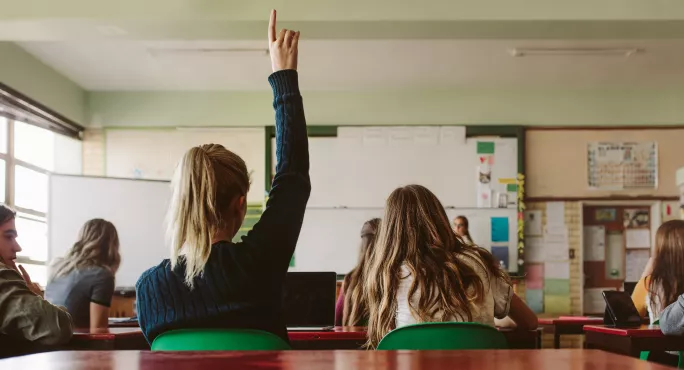GCSEs 2021: How far behind are Year 11 students?
Share
GCSEs 2021: How far behind are Year 11 students?
Fitting a whole GCSE course into two years has never been easy. But this year teachers of Year 11 face a whole new challenge: covering the second year of the GCSE course whilst also making up for any gaps in knowledge and understanding resulting from the time that students spent learning from home.
Should teachers be worried? While it is still early days, a clearer picture is now beginning to emerge of where Year 11 students are at, and how much additional work really needs to be done to get them back to where they need to be.
Preparing for GCSEs 2021
So, how are things shaping up in schools? We spoke to three teachers to find out.
Read more:
- The disadvantage gap: How big will the learning gap be after lockdown?
- GCSEs: Why it’s time to scrap target grades
- Revision: Why Instagram is the ultimate GCSE revision tool
English: ‘It might not be as bad as people feared’
It was hard to know, really, whether Year 11 students would start the year more behind than usual. There was a lot of hysterical media about how badly students would be affected and it can be easy to believe that. However, I wasn’t expecting it to be as bad as a lot of people were.
I really believe that, as experienced professionals, we fill gaps so naturally and often unconsciously that it might not be as bad as people feared. We always have classes with wildly different starting points. and that’s our bread and butter. We’re so tuned in to students’ knowledge and skills that we can easily remedy gaps.
Are my students actually behind so far? In a word, no. Of course, I will have to recap some core parts of GCSE texts, but you often do that anyway. It’s important to remember that in order to be behind, someone needs to be in front, and the lockdowns were something that affected every student nationally. They’ve got no one to be behind in that sense. For some students in disadvantaged circumstances, they may be a little behind their peers, but this is not disastrous. It’s often the case anyway.
As things stand, I have no concerns about getting students to where they need to be. Yes, we might have to do things a little differently, but I truly believe this is entirely achievable and that this is where we will shine as a profession.
Amy Forrester is an English teacher and director of pastoral care (key stage 4) at Cockermouth School in Cumbria
Maths: ‘It’s difficult to judge’
At this point in the year, it is difficult to judge any gaps that have opened up in the knowledge and understanding of Year 11, beyond those that we had already decided on.
For example, in my school we knew we wouldn’t be able to secure the necessary understanding of some units in a lockdown situation, so we chose to leave those completely until students were back. These we have planned for and are feeding back into the curriculum at appropriate points.
For example, I chose not to try and teach algebraic proportion functions to my Year 10 class, which should have been looked at during the summer term, and instead gave them more time on circle theorems. I have now fed algebraic proportion into a unit at the start of this year where we were looking at proportion in a different context.
Gaps like this we can plan for. Other gaps won’t be so straightforward, and I am sure they will appear at some point. Ultimately, the frequency and difficulty of resolving those unknown areas will determine how challenging it is to ensure pupils are fully prepared for the end of the year.
Peter Mattock is director of maths and numeracy at Brockington College in Leicestershire
Science: ‘We want them to have a completely fresh start’
Although we have those inevitable concerns about our Year 11, and their progress through GCSEs, we ensured that the work they completed in lockdown kept them in line with previous years.
Inevitably, we will have some students who have been adversely affected during the period of school closures, and their learning gaps will appear over the next few weeks and months. Of course, this will be addressed in a targeted way.
We have only been back a few days, so knowing how far behind students are, or precisely which learning gaps students have, is difficult in such a short period, particularly as we want them to have a completely fresh start to Year 11, without too much focus on the past few months.
We will address learning gaps when appropriate. However, I think this year is not vastly different to previous years. We have students at various levels of understanding in our subject and we will address their learning needs as we always do.
They will need to focus on retrieval practice, appropriate study and organisation. I think it will be very similar to previous years to get them to where they need to be.
Louise Lewis is a research lead and deputy head of science in a Yorkshire secondary school




